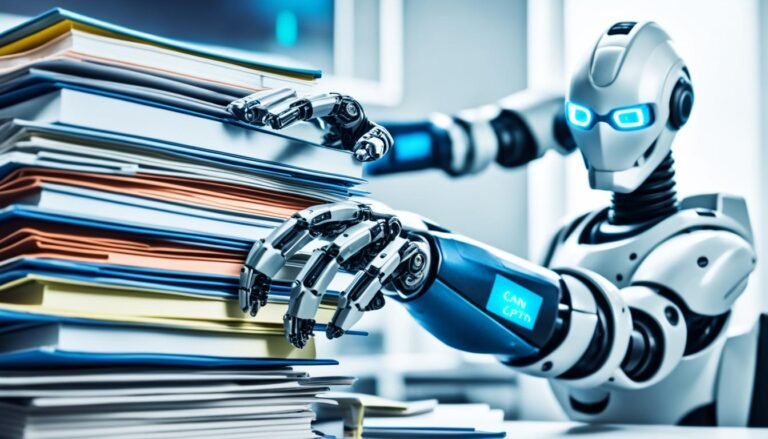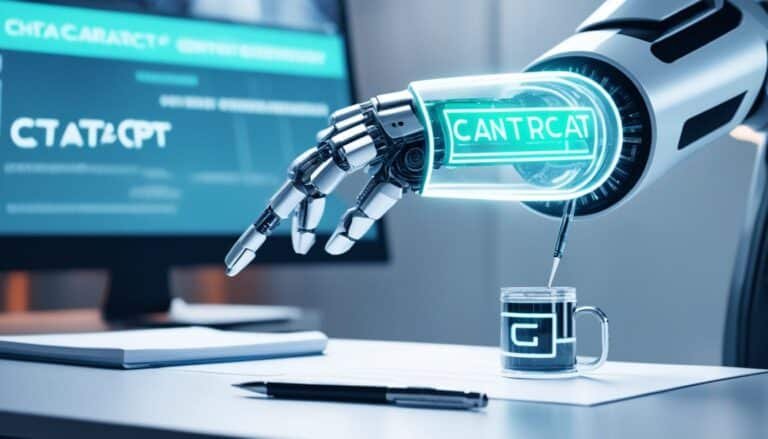Will ChatGPT Replace Accountants?
ChatGPT, an AI-powered chatbot developed by OpenAI, has sparked a heated debate about its potential to replace accountants in the accounting profession. As AI technology continues to advance, chatbots like ChatGPT are becoming increasingly sophisticated in their abilities to engage in natural dialogue and perform various tasks. However, the question of whether ChatGPT will completely replace accountants remains a subject of discussion and exploration.
Key Takeaways:
- ChatGPT is an AI-powered chatbot developed by OpenAI, known for its natural language processing capabilities.
- While ChatGPT offers a wide range of features and functionalities, it has certain limitations, such as the lack of common sense and potential biases.
- There are several alternative chatbot options available, including Bard, Jasper Chat, YouChat, DialoGPT, and ChatSonic.
- ChatGPT can be utilized in the accounting field to streamline processes such as managing accounts receivable and payable, automating data entry, and assisting with tax preparation.
- Although ChatGPT has the potential to enhance efficiency in certain tasks, it is unlikely to fully replace accountants due to the need for human expertise and understanding of complex financial matters.
What is ChatGPT?
ChatGPT is an AI-powered chatbot developed by OpenAI. As an AI-powered chatbot, ChatGPT is designed to engage in natural dialogue and perform a wide range of tasks. Users can interact with ChatGPT on its website and discuss various topics, ask questions, and even receive assistance with tasks such as writing, coding, and generating content.
With its advanced natural language processing capabilities, ChatGPT is able to provide human-like responses and engage in conversations that feel almost indistinguishable from those with a human operator. This makes it a valuable tool for individuals and businesses alike.
Developed by OpenAI, a leading artificial intelligence research laboratory, ChatGPT is powered by the latest advancements in AI technology. OpenAI has employed state-of-the-art machine learning algorithms and language models to train ChatGPT on vast amounts of text data from the internet.
The AI-powered chatbot is capable of performing a variety of tasks, making it highly versatile. Whether you need assistance with research, content creation, or even language translation, ChatGPT can deliver accurate and relevant information in a conversational manner.
OpenAI’s ChatGPT has become increasingly popular due to its ability to generate human-like responses and perform tasks autonomously. Its versatility and ease of use have made it a valuable tool for individuals and businesses looking to enhance their productivity and efficiency.
Furthermore, ChatGPT’s functionality extends beyond simple question-answering. It can act as a helpful assistant in various industries, including customer service, sales automation, and customer engagement. The AI-powered chatbot has the capability to streamline processes and improve customer satisfaction.
In the accounting field, for example, ChatGPT has the potential to revolutionize certain aspects of the profession. By automating tasks such as managing accounts receivable and payable, data entry, and even assisting with tax preparation, ChatGPT can help accountants save time, reduce errors, and improve overall efficiency.
Overall, ChatGPT’s capabilities, combined with OpenAI’s continuous advancements in AI technology, make it a powerful tool that has the potential to transform various industries and enhance human productivity.
Features and Functionalities of ChatGPT
ChatGPT offers a wide range of features and functionalities that make it a versatile tool for various applications. Whether you need question-answering capabilities, customer service support, sales automation, customer engagement, or assistive technologies, ChatGPT has got you covered.
1. Question-Answering:
ChatGPT can provide accurate and informative answers to a wide range of questions. Whether you need help with factual information, product specifications, or general knowledge, ChatGPT is equipped to deliver quick and relevant responses.
2. Customer Service:
With ChatGPT, you can enhance your customer service experience. The chatbot can handle customer queries, provide solutions to common problems, and offer assistance throughout the customer journey. This helps improve customer satisfaction and reduces the workload on your support team.
3. Sales Automation:
By leveraging ChatGPT, you can automate certain sales processes. The chatbot can engage with potential customers, provide product information, and guide them through the sales funnel. This automation saves time and ensures consistent and personalized interactions with your prospects.
4. Customer Engagement:
Engaging customers is critical for building brand loyalty and fostering long-term relationships. ChatGPT enables interactive and personalized conversations, allowing you to engage with your customers in a meaningful way. The chatbot can recommend products, offer tailored suggestions, and provide a seamless customer experience.
5. Assistive Technologies:
ChatGPT can assist users in various tasks, such as generating content, proofreading, and editing. The chatbot can be a valuable tool for professionals and students alike, helping them improve their productivity and efficiency.
6. Social Media:
Incorporating ChatGPT into your social media strategy can enhance content creation and engagement. The chatbot can generate social media posts, respond to comments and messages, and even offer customer support via social media platforms.
7. Language Translation:
With its language translation capabilities, ChatGPT can help break down language barriers. It can translate text from one language to another, facilitating communication and collaboration across different regions and cultures.
These features and functionalities make ChatGPT a powerful tool that can revolutionize customer service, automate sales processes, and improve overall customer engagement. Its versatility and adaptability make it an invaluable asset for businesses across various industries.
How Does ChatGPT Work?
To understand how ChatGPT operates, it’s essential to explore the underlying technology that powers it. ChatGPT utilizes the GPT-3 model, a state-of-the-art language model developed by OpenAI. This model has been trained on an extensive amount of text data, enabling it to generate human-like text-based responses.
When you interact with ChatGPT, the process begins with input processing. You input your message or question, and the system starts to analyze it using natural language processing techniques. This initial step is crucial for the chatbot to understand the context and intent behind your query.
Next, the input goes through tokenization. This process involves breaking down the input text into smaller units called tokens. These tokens can be words or even smaller subwords, aiding in the analysis and comprehension of the input.
Once tokenization is complete, the input is embedded into a neural network. This neural network is the core component of the GPT-3 model and plays a significant role in understanding and processing language data. The embedding of the input helps create a numerical representation that the model can interpret and work with.
After embedding, the system proceeds with the encoding and decoding phase. Encoding involves transforming the embedded input into a format that the model can process effectively. Decoding, on the other hand, refers to generating an output representation based on the processed input.
With the information encoded and decoded, ChatGPT moves on to text creation and output. Using the processed input and its understanding of language, the chatbot generates a response that aims to provide relevant and coherent information in a conversational manner.
Through the intricate process of input processing, tokenization, embedding, encoding, decoding, and text creation, ChatGPT is capable of delivering natural and human-like conversational responses to your queries.
In the next section, we will explore the limitations of ChatGPT and how they can impact its performance.
Limitations of ChatGPT
While ChatGPT is a powerful tool, it does have its limitations that users should be aware of. Understanding these limitations can help you make informed decisions about when and how to use ChatGPT effectively.
Lack of Common Sense
One of the major limitations of ChatGPT is its lack of common sense. Although it can generate impressive responses based on the input it receives, it may lack the ability to understand subtle nuances or provide contextually appropriate answers. As a result, it may occasionally provide inaccurate or irrelevant information.
Technical Knowledge Requirements
To use ChatGPT effectively, you need to have a solid understanding of the subject matter you are discussing. This is because ChatGPT’s responses heavily rely on the quality and accuracy of the input it receives. Without sufficient technical knowledge, it may be challenging to generate accurate and reliable responses.
Errors in Responses
While ChatGPT is designed to be highly accurate, it is not perfect. Just like any AI technology, ChatGPT can make errors in its responses. These errors can be due to factors such as incomplete training or inherent limitations in the AI model. Therefore, it’s crucial to double-check the information provided by ChatGPT before relying on it completely.
Lack of Emotional Intelligence
ChatGPT lacks emotional intelligence, which means it may not fully understand or respond appropriately to emotions expressed in inputs. It may provide factual responses without considering the tone or emotions conveyed in the conversation. This limitation can hinder its ability to effectively engage with users on an emotional level.
Difficulties in Understanding Context
Understanding context is a complex task even for advanced AI models like ChatGPT. It may struggle to grasp the context of a conversation, especially when dealing with ambiguous or vague queries. Consequently, it may provide responses that are not aligned with the intended meaning or fail to address the specific context of the conversation.
Potential Biases
ChatGPT may exhibit biases in its responses. These biases can be a result of the biases present in the training data or the inherent biases of the AI model. It’s important to be cautious when using ChatGPT to ensure that the generated responses do not reinforce or perpetuate any form of bias.
Need for Fine-tuning
While ChatGPT offers impressive capabilities out of the box, fine-tuning may be required to optimize its performance for specific tasks or industries. Fine-tuning involves training the model further on specialized datasets to enhance its accuracy and relevance. This process requires technical expertise and additional effort.
Limited Knowledge
ChatGPT’s knowledge is limited to the information it has been trained on. It may not have up-to-date or comprehensive knowledge on specific topics. Therefore, it’s important to verify and validate the responses provided by ChatGPT with other reliable sources to ensure accuracy.
Alternatives to ChatGPT
While ChatGPT is a popular AI chatbot, there are several alternatives available that cater to different needs. Here are some notable alternatives to ChatGPT:
- Bard: Bard is an AI chatbot that specializes in natural language processing and can assist with various tasks.
- Jasper Chat: Jasper Chat is another AI chatbot that focuses on delivering personalized customer service experiences through natural dialogue.
- YouChat: YouChat offers a user-friendly interface and robust features to enhance customer engagement and support.
- DialoGPT: DialoGPT is an AI chatbot known for its advanced conversational abilities and its capacity to carry out complex conversations on a wide range of topics.
- ChatSonic: ChatSonic offers a seamless integration with existing systems and provides customizable solutions for businesses in various industries.
These alternatives to ChatGPT present a diverse range of features and functionalities, catering to different needs and preferences. Whether you require natural language processing, personalized customer service, user-friendly interface, advanced conversational abilities, or seamless integration, these alternatives offer options to explore beyond ChatGPT.
Incorporating an AI chatbot like ChatGPT or one of its alternatives can revolutionize customer interactions, streamline processes, and improve overall efficiency in various industries.

ChatGPT in the Accounting Field
ChatGPT can be a valuable tool for accountants in streamlining various processes and improving overall efficiency in the accounting field. Its capabilities extend beyond just engaging in natural dialogue. Here are some key ways in which ChatGPT can contribute to accounting:
Managing Accounts Receivable and Payable
ChatGPT can assist accountants in managing accounts receivable and payable by automating repetitive tasks. With its advanced algorithms, it can accurately process and organize financial data, track invoices, and generate reminders for outstanding payments.
Automating Data Entry
Data entry is a time-consuming and error-prone task in accounting. ChatGPT can automate data entry by extracting and capturing relevant information from documents, invoices, and receipts. This eliminates the need for manual data input and reduces the risk of human error.
Assisting with Tax Preparation
Preparing taxes requires careful attention to detail and in-depth knowledge of tax regulations. ChatGPT can provide accountants with real-time access to updated tax guidelines, answer tax-related queries, and even assist in calculating tax liabilities. This can expedite the tax preparation process and ensure accurate results.
By leveraging ChatGPT’s capabilities in managing accounts receivable and payable, automating data entry, and assisting with tax preparation, accountants can save valuable time and allocate resources more efficiently. With the help of AI-driven technology, they can reduce manual workload, minimize errors, and focus on higher-level financial analysis and decision-making.
Next, let’s explore the inner workings of ChatGPT and how it processes information to provide accurate and relevant responses.

Conclusion
In conclusion, the impact of ChatGPT on the accounting profession is significant, but it is unlikely to fully replace accountants. While ChatGPT, an AI-powered chatbot developed by OpenAI, has the potential to assist accountants in their work, it has certain limitations that hinder its capability to replace human expertise.
One of the main limitations of ChatGPT is its lack of common sense, which can result in inaccurate or irrelevant responses. Accountants possess critical thinking and reasoning skills that are essential in the accounting profession, and this expertise cannot be fully replicated by AI.
However, ChatGPT can revolutionize certain aspects of accounting and enhance efficiency in specific tasks. It can streamline processes such as managing accounts receivable and payable, automating data entry, and assisting with tax preparation. The integration of AI technology like ChatGPT alongside human expertise can greatly improve productivity and accuracy in the accounting field.
The potential role of ChatGPT in future accounting lies in its ability to augment the accountant’s role rather than replace it. By leveraging the power of AI, accountants can focus on complex financial analysis, strategic decision-making, and client relationship management, while ChatGPT handles routine and repetitive tasks. This symbiotic relationship between accountants and ChatGPT can lead to increased productivity and a more efficient accounting profession.
FAQ
Will ChatGPT replace accountants?
While ChatGPT has the potential to assist accountants in their work, it is unlikely to fully replace them. The chatbot’s limitations, such as the lack of common sense and the need for human expertise, suggest that accountants will continue to play a crucial role in the accounting profession.
What is ChatGPT?
ChatGPT is an AI-powered chatbot developed by OpenAI. It is designed to engage in natural dialogue and perform a wide range of tasks, such as answering questions, providing customer service support, automating sales processes, enhancing customer engagement, assisting with tasks, generating social media content, and improving language translation capabilities.
What are the features and functionalities of ChatGPT?
ChatGPT offers several features and functionalities, including question-answering, customer service support, sales automation, customer engagement enhancement, assistive technologies, social media content generation, and language translation improvement.
How does ChatGPT work?
ChatGPT is powered by the GPT-3 model. It works by processing user input, tokenizing the text, embedding it into a neural network, encoding and decoding the information, and generating a text-based response, allowing ChatGPT to provide human-like conversational responses.
What are the limitations of ChatGPT?
ChatGPT has limitations such as the lack of common sense, the need for deep subject expertise, potential inaccuracies in responses, difficulties in understanding context, potential biases, the need for fine-tuning, and limited knowledge on specific topics.
Are there alternatives to ChatGPT?
Yes, some notable alternatives to ChatGPT include Bard, Jasper Chat, YouChat, DialoGPT, and ChatSonic. These tools also offer various features and functionalities for different purposes.
How can ChatGPT be utilized in the accounting field?
ChatGPT can be utilized in the accounting field to streamline various processes, such as managing accounts receivable and payable, automating data entry tasks, and assisting with tax preparation. These functionalities can help accountants save time, reduce errors, and improve efficiency in their work.
What is the conclusion regarding ChatGPT’s impact on the accounting profession?
While ChatGPT has the potential to revolutionize certain aspects of accounting and enhance efficiency in certain tasks, it is unlikely to fully replace accountants. Human expertise and the limitations of ChatGPT suggest that accountants will continue to play a crucial role in the accounting profession, with the future potentially involving the integration of AI technology like ChatGPT alongside human expertise.






